Hemant Aggarwal
Calibrationless Parallel MRI using Model based Deep Learning (C-MODL)
Jan 21, 2020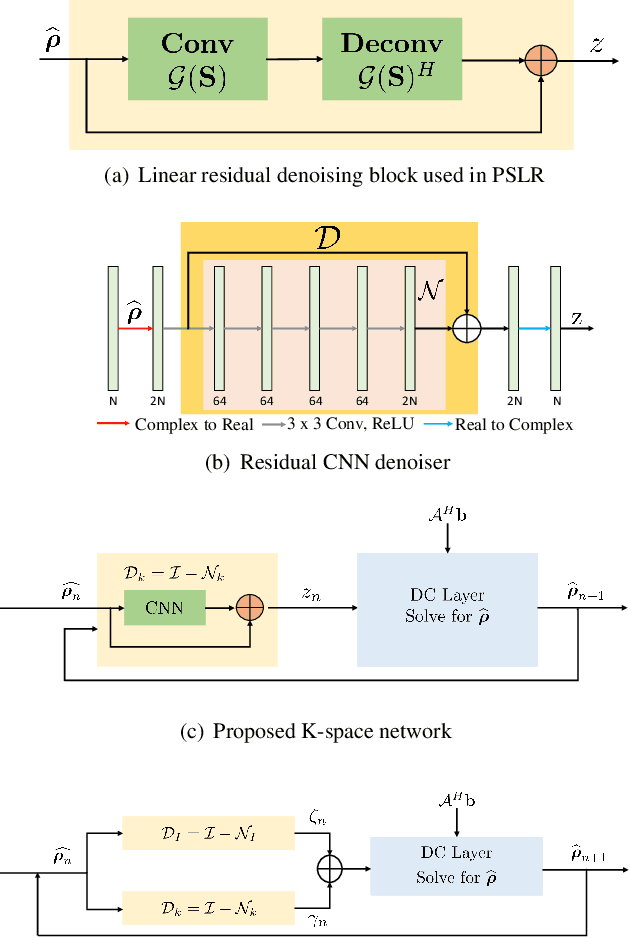
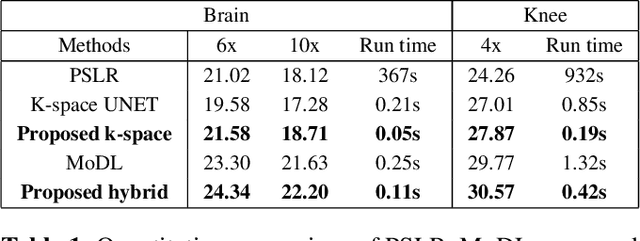
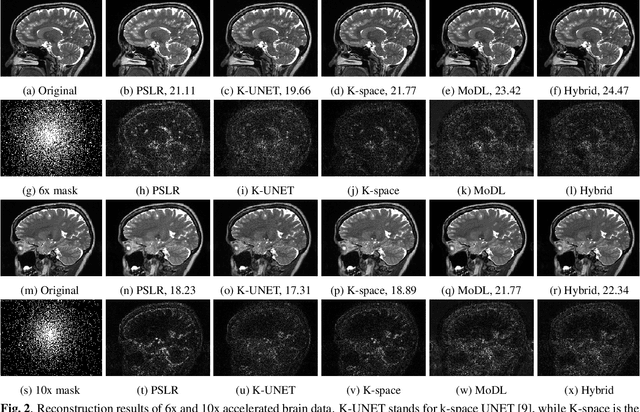
Abstract:We introduce a fast model based deep learning approach for calibrationless parallel MRI reconstruction. The proposed scheme is a non-linear generalization of structured low rank (SLR) methods that self learn linear annihilation filters from the same subject. It pre-learns non-linear annihilation relations in the Fourier domain from exemplar data. The pre-learning strategy significantly reduces the computational complexity, making the proposed scheme three orders of magnitude faster than SLR schemes. The proposed framework also allows the use of a complementary spatial domain prior; the hybrid regularization scheme offers improved performance over calibrated image domain MoDL approach. The calibrationless strategy minimizes potential mismatches between calibration data and the main scan, while eliminating the need for a fully sampled calibration region.
Deep Generalization of Structured Low Rank Algorithms (Deep-SLR)
Dec 07, 2019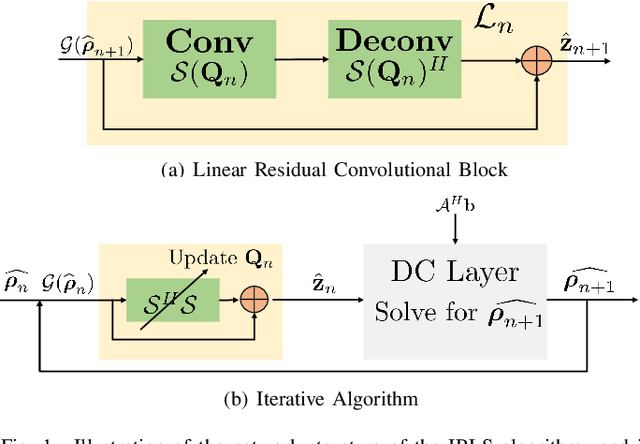
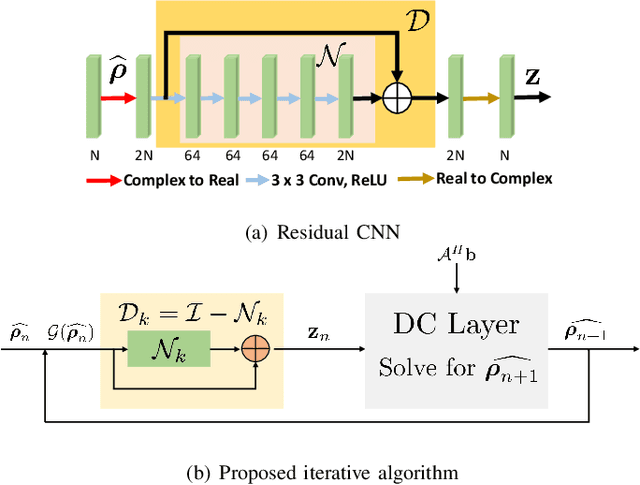

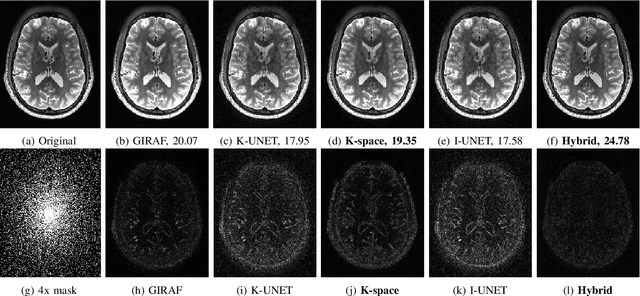
Abstract:Structured low-rank (SLR) algorithms are emerging as powerful image reconstruction approaches because they can capitalize on several signal properties, which conventional image-based approaches have difficulty in exploiting. The main challenge with this scheme that self learns an annihilation convolutional filterbank from the undersampled data is its high computational complexity. We introduce a deep-learning approach to quite significantly reduce the computational complexity of SLR schemes. Specifically, we pre-learn a CNN-based annihilation filterbank from exemplar data, which is used as a prior in a model-based reconstruction scheme. The CNN parameters are learned in an end-to-end fashion by un-rolling the iterative algorithm. The main difference of the proposed scheme with current model-based deep learning strategies is the learning of non-linear annihilation relations in Fourier space using a modelbased framework. The experimental comparisons show that the proposed scheme can offer similar performance as SLR schemes in the calibrationless parallel MRI setting, while reducing the run-time by around three orders of magnitude. We also combine the proposed scheme with image domain priors, which are complementary, thus further improving the performance over SLR schemes.
 Add to Chrome
Add to Chrome Add to Firefox
Add to Firefox Add to Edge
Add to Edge